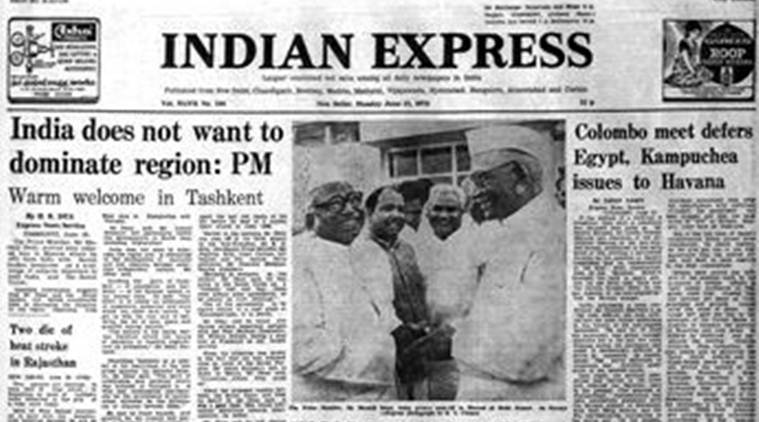
PM In Tashkent
Prime Minister Morarji Desai arrived in Tashkent on the way to Moscow where he will have talks with Soviet leaders on a wide range of subjects important to both India and the Soviet Union. Available information suggests that Desai and the Soviet leaders will devote considerable time to discussing the situation in the region beginning from West Asia to Kampuchea and Vietnam. Desai and Leonid Brezhnev will review the developments in South Asia, including Afghanistan. India does not want to dominate the region and is committed to the development of equitable relations between sovereign independent nations, Desai said. Invoking the spirit of Tashkent — of conciliation and harmony — at his banquet speech in his honour, he said: ‘‘Our effort is to create an atmosphere of cooperative endeavour and trust.”
Split Imminent
With the meeting of Karnataka’s District Congress Committee presidents and general secretaries openly daring the party high command to act on the PCC presidentship issue through a resolution which leaves nothing to one’s imagination, an imminent split in the party and consequent developments on a split in the party at the national level have become imminent. The chief minister and state Congress-I chief, Devaraj Urs, has thrown the gauntlet with this meeting. It is now entirely up to Indira Gandhi, the Congress-I president, to accept it or not.
Dual Membership
Raj Narain, Janata Party MP, demanded the resignation of Atal Bihari Vajpayee and L K Advani from the Union cabinet. He said they had “violated the party constitution by holding dual membership of the Janata Party and the RSS”. He said the Janata Party constitution barred those associated with a religious or a communal organisations from becoming members. He said the RSS was not only a communal organisation but also a fascist one.